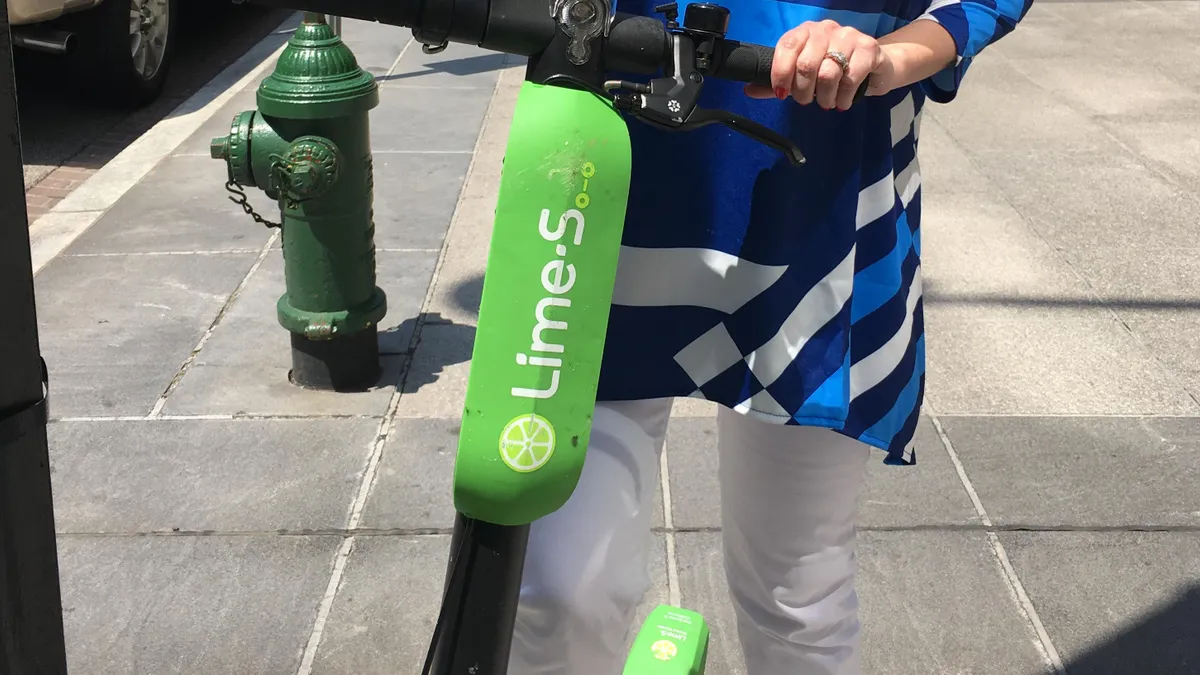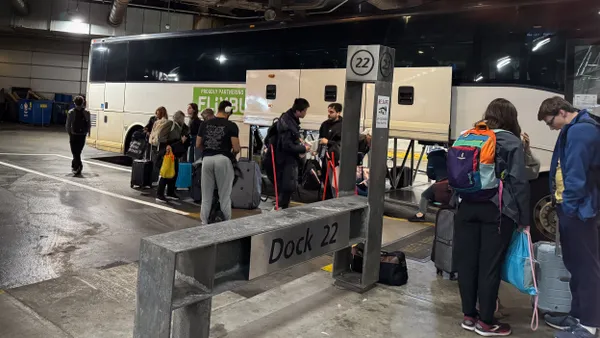Dive Brief:
- Dockless scooter-sharing business Bird has released about 60 devices in parts of Baltimore, according to The Baltimore Sun.
- Bird also released scooters in Salt Lake City, UT and Dallas, according to Deseret News and Fox 4 News, respectively. Bird reportedly does not yet have a business license in Salt Lake City but has applied for one, and city leaders expressed desire to work with the company on creating mutually agreeable regulations for scooter-sharing. The Bird scooters — along with some from competitor Lime — arrived in Dallas just two days after the city approved a six-month pilot program, and each company is allowed up to 500 scooters.
- Meanwhile, several cities just completed or are devising scooter-share regulations. New Orleans leaders are trying to tackle the issue before the scooters arrive, according to The Times-Picayune. Denver just unveiled regulations and permits for dockless operators, according to Denver 7, after having issued cease-and-desist orders to Lime and Bird last month. The two companies released scooters in Indianapolis within days of each other last month and leaders there are now hashing out regulations. Bird denied the city's request to remove its scooters for 30 days while regulations get worked out, according to The Indianapolis Star, and thus far the city has not fined Bird or taken further action.
Dive Insight:
Cities have been taking various approaches to the arrival of dockless scooters. Miami, Denver and Milwaukee, WI all issued cease-and-desist orders to the scooter operators, telling them to remove the devices. Others allow the devices to stay while working on regulations, and still other municipalities haven't said much about the devices' arrival at all.
By the same token, the scooter businesses appear to take inconsistent approaches to their launches. Some cities complain that the devices appear overnight without warning, others report having about two days notice, and still others reportedly work with the scooter providers on an amenable operations plan. Cities such as Indianapolis have been forced to decide if they will ignore Bird's refusal to remove its devices, or if the company will be slapped with fines and other punitive measures.
Bird will retrieve the devices from Baltimore's streets each night, which some consider a move to reduce the likelihood of theft. Baltimore's bike-share program had to shut down for a month last year because of theft and maintenance backlogs. Leaving scooters out only during daytime hours could indeed deter theft, but Bird actually already brings in scooters at night in cities where it operates to maintain and charge the devices.
The neighborhoods where the scooters were unleashed in Baltimore — Inner Harbor and Fells Point — were undoubtedly also strategically chosen in part to prevent theft, considering they're lower crime, higher income areas compared with many other parts of the city. Although the placement cuts down on potential theft, it also cuts down on equitable distribution of transportation innovations to lower income residents who might be most in need of new mobility options. Bird reportedly intends to expand to other parts of the city if its initial scooter launch is successful, but it's unclear exactly which neighborhoods would be served.
If operators continue to obtain permits before releasing devices in cities, and municipalities continue to draw up legislation before the devices arrive, smoother program launches could be on the horizon.












